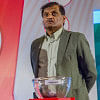Is Shakib alone responsible for his predicament?

Legendary cricketer Shakib Al Hasan's final wish was to retire from Test cricket on his home soil. However, despite everything being in place, he was barred from returning to Bangladesh just before the series against South Africa due to security concerns.
This decision by the Bangladesh Cricket Board (BCB) caused an uproar among Shakib's fans across the country. Recently, some miscreants had attacked Shakib's supporters, who were protesting in the Mirpur Stadium area despite the presence of police and army personnel. A group opposing Shakib getting the farewell that he wanted accused him of supporting the fallen Awami League regime, citing his election as a Member of Parliament (MP) from the Magura-1 constituency under the AL in the last national polls.
Additionally, a murder case was filed against Shakib following the July-August mass uprising. The primary reason for this could be his silence when many civilians were being killed by law enforcement and Awami League cadres during the anti-discrimination movement. However, days before the South Africa Test series, Shakib apologised to the nation for his silence during the movement and honoured the victims as martyrs.
Shakib's 17-year cricket career was marked by numerous controversies, and his farewell is no different. Now, let's discuss why his departure from cricket wasn't a pleasant one, and why a cricket legend like Shakib entered politics in the first place.
Throughout his career, Shakib's identity extended beyond being a world-renowned cricketer. He ventured into business, starting with a small restaurant, then expanding into residential hotels, cosmetics, event management, travel agencies, digital healthcare, e-commerce, gold imports, crab farming, the stock market, and cricket academies.
About 10 years ago, rumours began circulating that Shakib would enter AL politics. Finally, in 2024, Shakib was elected as an MP from Magura-1 on an Awami League nomination.
Shakib's identity now had three dimensions: cricketer, businessman, and politician.
Interestingly, on September 14, 2013, Shakib had posted on Facebook that he had no interest in politics. So why did he enter politics towards the end of his career? The answer seems to lie in his pursuit of power, which he could use to manage his businesses after retiring from cricket. By then, he had realised that political power was essential for running a business smoothly or holding a significant position in the BCB. For Shakib, Nazmul Hasan Papon, who was simultaneously a businessman, lawmaker, and repeatedly elected BCB president, served as a prime example.
This raises the question: should a contractual player be involved in politics? Even after becoming an MP, Shakib continued playing international cricket, neglecting his responsibilities to his constituency. He didn't fulfil his duties as an MP, yet he continued to receive all the privileges of that position, including salary and allowances. Wasn't this a mockery of the system?
The real issue is that the country's political system allowed this. Public service isn't taken seriously in Bangladesh. Those with money, muscle, popularity, business influence, and connections with political leaders are often given nominations for national elections, even if they aren't tested political figures. As a result, grassroots leaders, who have been committed to political parties for years, are overlooked. This has been the case for the last 20-25 years in both the AL and BNP. In neighbouring India, we've seen a similar trend, with political parties leveraging the popularity of actors, artists, and sportspersons to gain power. In the last 15 years, leaders like Sheikh Hasina in Bangladesh and Mamata Banerjee in West Bengal have accelerated this practice.
The term "politics" refers to the art of governing people. How can a full-time national cricketer practice this art?
In 1919, German sociologist and political economist Max Weber defined political leadership as a vocation. According to Weber, while politics is about the pursuit of power, a political leader must have a deep sense of duty and responsibility towards the well-being of citizens, often sacrificing personal goals for the greater good. From this perspective, Shakib's entry into politics seems like a joke. He was far from embodying politics as a vocation.
However, those who made him a lawmaker while he was still a full-time national cricketer are equally responsible for Shakib's current predicament. The system that allows someone to be both an MP and pursue another important profession needs reform. Laws should ensure that no one becomes a lawmaker solely to gain power.
Shakib is a charismatic leader. If he had wanted, he could have retired from cricket and been elected as an independent MP at any time. But he didn't. He sought more power, and that was a mistake. Still, the blame lies not only with him but also with Bangladesh's flawed political structure.
Shakib is not just a cricket legend in Bangladesh, but a rare talent on the global stage. He has inspired a new generation to advance the country's cricket. Denying him a farewell match on security grounds sets a terrible example for the youth.
When security concerns are used as an excuse, it becomes a political issue. If a state cannot provide security to one of its finest players, how is it providing security to the 15-20 members of foreign teams? Failing to protect Shakib calls that into question.
While Shakib has broken many rules throughout his career and faced punishments from both the ICC and BCB, being denied security and a proper farewell on home soil is undoubtedly the harshest punishment of all.
Mostafa Shabuj is a journalist at The Daily Star.
Views expressed in this article are the author's own.
Follow The Daily Star Opinion on Facebook for the latest opinions, commentaries and analyses by experts and professionals. To contribute your article or letter to The Daily Star Opinion, see our guidelines for submission.

 For all latest news, follow The Daily Star's Google News channel.
For all latest news, follow The Daily Star's Google News channel. 










Comments